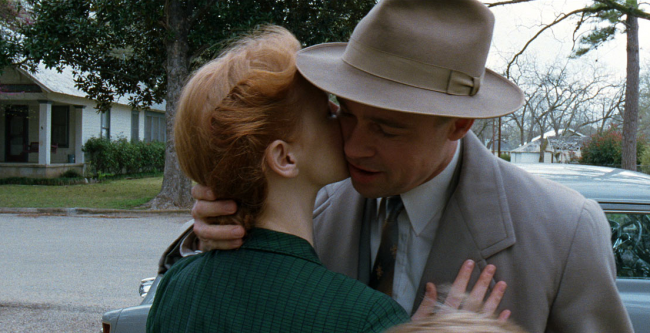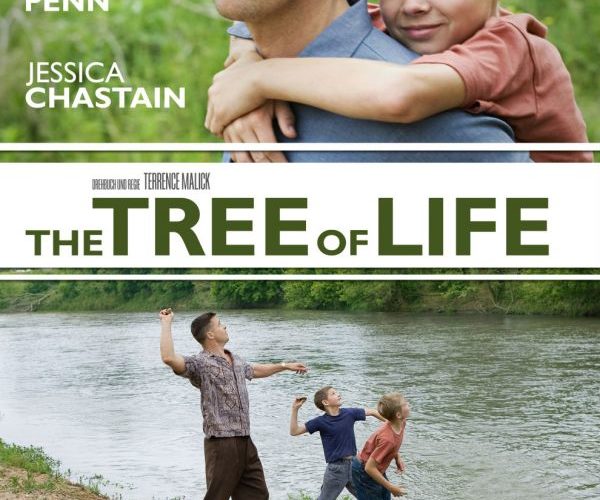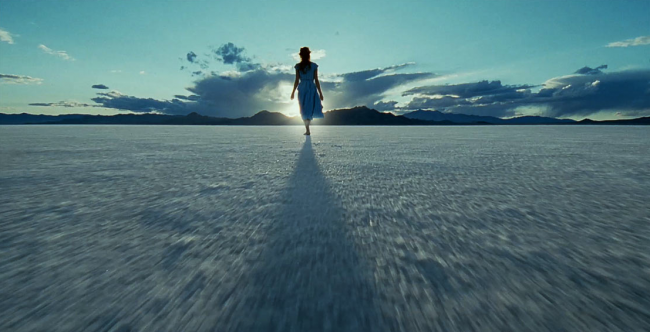Sprawling and epic — two obvious, but true words to describe any Malick film. To no surprise whatsoever, The Tree of Life fits into that lush and overwhelming Malick territory. Whether or not a viewer actually enjoys what Malick puts on screen here or what he’s trying to say, one can’t possibly fault the poetic storyteller for a lack of ambition and passion.
Malick has always been one to explore relatable and deep themes. Here he goes for something a bit more basic and, at times, slightly obvious: how quick time passes, what both fatherhood and childhood mean, and so much more. Those are the ideas that are apparent, almost too much at times.
The Tree of Life isn’t meant to be viewed only once. Every minute the film, whether it be with narration or one of the countless beautiful images, has something to say. Malick delves into the wonders and horrors of childhood, the quick pacing of life, and parenthood. Very few stories capture what it’s truly like to be a child as authentically as The Tree of Life does.
 The wonderment, the sadness, the confusion, violence, and playfulness. Malick starts off the film with showing the beginning of time and concludes with the end of time, and it’s a perfect representation of the transition of childhood to adulthood depicted in the film. There’s a sense of beauty and discovery to the opening, both in terms of the creation of earth and the children in their early stages. Towards the end you see the lead child, Jack (played later on by Sean Penn), in the adult world and everything couldn’t be more mechanical and dour. Jack’s imagination and youthfulness is dead, and he’s become his father’s idea of success.
The wonderment, the sadness, the confusion, violence, and playfulness. Malick starts off the film with showing the beginning of time and concludes with the end of time, and it’s a perfect representation of the transition of childhood to adulthood depicted in the film. There’s a sense of beauty and discovery to the opening, both in terms of the creation of earth and the children in their early stages. Towards the end you see the lead child, Jack (played later on by Sean Penn), in the adult world and everything couldn’t be more mechanical and dour. Jack’s imagination and youthfulness is dead, and he’s become his father’s idea of success.
Jack (as a child, played by Hunter McCracken) and his father’s (Brad Pitt) relationship was both full of love and resentment. His father pushes his children too hard to become what he considers men, almost to the point where he could be easily resented. But he’s not. Pitt brings an understandable and sympathy to the father. He’s a man that keeps most of his emotions to himself, is working class, and is dedicated to his family.
Just by watching Mr. O’Brien for a minute, one can get a firm grasp of his whole life; comes from a working family, isn’t the brightest of men, and has seen the darker side of humanity, unlike Jack’s mother (Jessica Chastain). He wants his boys to be hardened men and prepared for the world. Despite his sternness, it’s obvious he loves his children and wants to prepare them for what’s to come, something that Jack doesn’t understand in his adolescent state.
But Jack does understand that once he’s older, and Penn carries a great sadness to him throughout all of his scenes with that realization. He’s lost his childlike innocence and is now doing what men are “supposed” to be doing. As Mr. O’Brien predicted, the world ate both his sons up; one dying in war and the other coming to passively walking through life without a sense of purpose. Mr. O’Brien’s cynicism ultimately wins out over his wife’s more warm-hearted and bright outlook.
The Tree of Life can be perceived as messy due to its sprawling structure, but it’s also one of the most ambitious films one will likely ever be able to experience. Malick has shot another poem for the ages. This is a film that requires one’s patience and thoughts, but never feels like work. As the time passes after a first viewing, the more subtle ideas and concepts finally start to unravel. If one digs under the surface, then meaning will be found. This is as bold and rich non-narrative, meditative study on the beauty and tragedies of life.
The Tree of Life is now expanding and will open wide on July 8th, 2011.


